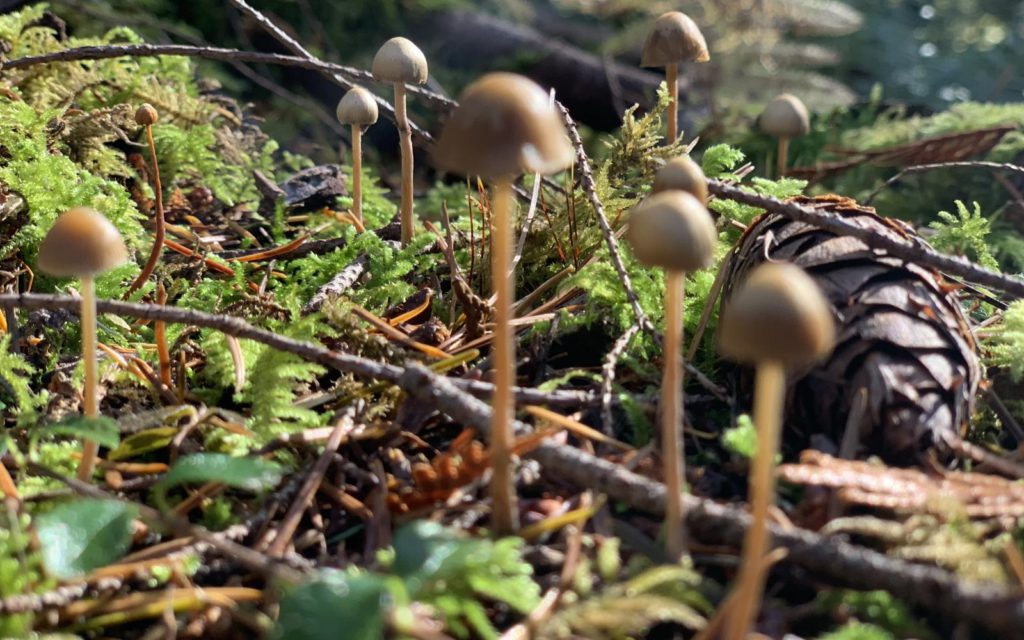
A new psychedelic research centre at Vancouver Island University is bringing together Indigenous, western and other ways of knowing.
The centre is the first of its kind in Canada and will combine two cultures to take a holistic approach to the emerging field of psychedelic-based treatment.
Targeting issues like PTSD, palliative care and other chronic illnesses, the practitioners at the Naut sa Mawt Centre for Psychedelic Research (NCPR) are putting forward some bold ideas that could change the way British Columbians approach health care.
The university has already laid out several proposals that it says are waiting on approval and funding. A few of these programs it wants to explore include treating PTSD with ketamine, psilocybin therapy for end-of-life care, or giving MDMA to those suffering from fibromyalgia.
All of this isn’t that new, but what will be is the approach the university is taking towards the science: instead of taking these studies on from the usual western-scientific method, experts here say weaving traditional Indigenous teachings into the modern approach science takes will help revolutionize the field.
The scientific method as it’s understood in the west can be considered highly structured and rigorous, with a focus on repeatability and measurement, and Georgina Martin, an Indigenous health educator at VIU and overseer for the program, says the western method is secondary in her approach.
“I give priority to making sure that Indigenous research methodologies are considered upfront and they are applied according to that nation’s protocols and ethics,” Martin said.
She says she holds the communities ethics and protocols above the university’s and has always done so when conducting her own research at the university in the past.
“It’s no longer acceptable for the Western approach to be the dominant approach,” Martin said. “It has to be highly shifted over towards the Indigenous people and communities, connecting with their culture, language and land.”
By conjoining modern biomedical practices with a more traditional and spiritually focused approach to medicine from Indigenous cultures, the centre plans to pave a new way forward in health care while simultaneously furthering reconciliation with the Indigenous community.
“In recent years, I, as a healthcare professional, have always seen reconciliation as giving voice, making sure that there’s equity, and jobs, and opportunities,” said Shannon Dames, chair for the VIU’s NCPR. “I’ve come to believe over time and working closely with the Snuneymuxw First Nation, that this is done by working in relationship.”
She said reconciliation starts by fostering a community.
“That’s really about developing friendships, trustworthy relationships, where we see each other beyond the hats we wear and even the cultures we carry, but instead see each other’s humanness,” Dames said.
While most fields of medicine are highly established, the field of psychedelic-based treatment is rather new.
“When a new one comes in, we have to write the rules,” Dames said. “We have to come to an agreement around what this looks like, how do we keep people safe, how do we leave enough room for intuition as the field develops without creating safety issues.”
Seated on the clinic’s board is a diverse background of healthcare workers, from a variety of disciplines. From medical doctors, professional counsellors, Indigenous social workers, all the way to somatic practitioners, the list goes on.
Dames says when people work in isolation, there’s no accountability, but thanks to the broad walks of life the entire team comes from, there are a lot of checks and balances taking place at the centre.
“With learning comes stumbling, and stumbling is normal, but we need to create the guardrails to kind of make sure that stumbling doesn’t land on patients in a bad way,” Dames said.
One way the clinic plans to keep patients safe is by holding some sessions online.
“With the onset of COVID we really had to shift our programming to an online environment, in order to sustain it,” Dames said.
“We were really surprised at how effective it was. We’re fairly isolated people, and technology is becoming a way we’re learning to connect authentically. And when people can stay in their own home, in the comfort of their own home — and do some ‘stretchy’ work with others, there are some real benefits to that.”
She adds that for a lot of people, these kinds of procedures can be stressful at first, especially in a clinical setting that “feels a bit institutional.”
However, several of their programs are already developing other methods to bring their patients together, with weekly virtual groups that allow patients to get to know one another and become comfortable in each other’s presence before finally meeting in person to have a psychedelic-assisted therapy session together.
The school has made a name for itself as a leader in the field of illicit substances, securing government funding to develop new ways to check personal supply in 2021, and also creating the Psychedelic Assisted Therapy program, a one-year course that kicked off in 2022.
Only recently has the government begun to approve requests made to its special access program (SAP) that allow doctors and researchers access to typically-illicit drugs for use in clinical settings, psychedelic research, and as a form of treatment.
Currently, the university already hosts several organizations that have begun laying out the ground work in the field of psychedelic medicine. Roots to Thrive is one of the partnering organizations at the centre of this new clinic.
The other is the Psychedelic Data Society, which processes data patients submit anonymously and works as an advocacy group for psychedelic science and drug policy reform.



